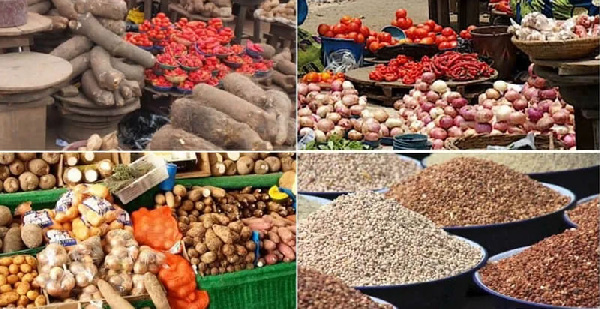Latest data released by the Ghana Statistical Service, GSS, indicates that on a year-on-year basis (January 2020 to January 2021), the average price of goods and services across the country increased by 9.9 percent.
The rise in the inflation rate for January 2021, is however lower than the rate recorded for December 2020 by 0.5 percentage point, and returns the country’s inflation rate to within the medium-term target band of 8 +/- 2 percent.
Speaking at a press conference in Accra, the Government Statistician, Professor Samuel Annim highlighted the key reasons for the drop in January’s inflation rate when compared to the rate for December 2020.
“The CPI for January stood at 122.7 leading to a year-on-year inflation (January 2020 to January 2021) being 9.9%. Variation between food and non-food inflation stood at 5.1% with food inflation recording 12.8% and non-food inflation recording 7.7%.”
“Food inflation in January (12.8%) came down compared to last month (14.1%). Within the Food Division, Vegetables (20.3%) was the subclass with the highest rate of inflation. Overall month-on-month food inflation was 1.2% (0.3 percentage point lower than last month. Compared to last December 2020, Fruits and Nuts (-5.1%) saw a decrease in price levels, as did Fish and Other Seafood (-0.2%),” he added.
On the regional disaggregation front, inflation in the Greater Accra region when compared to the other regions, was the highest for both food and non-food inflation.
“Unlike last month where we saw a variation in the region dominating food inflation relative to the region dominating non-food inflation, this time round we see Greater Accra region dominating both. Specifically we see Greater Accra region recording a non-food inflation figure of 14.3% with the least being recorded in the Upper West region of 4.5%. For food inflation Greater Accra region recorded 16.2% while Upper West recorded a deflation of 0.6%, leading to an overall inflation rate for Greater Accra region being 15.1%. The least regional inflation rate is recorded by Upper West of 1.9%.”


Comments are closed.